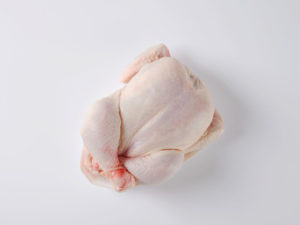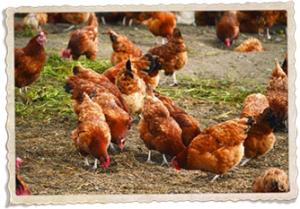When you get your chicken meat from the grocery store, it often comes from large corporations that use unethical practices. Chickens are kept in cruel environments and there is little care given to their happiness and livelihood. However, we can help break this cycle. Small flock owners and free rangers can provide a healthy and happy environment for their meat birds. Doing so is not only ethical but can also produce higher quality meat.
Here’s how to get started:
Should you raise chicken for meat?
Raising meat birds is very different from raising laying hens. You’ll have a larger number of birds to take care of (at least fifty if you want to be profitable, although you could stick with a smaller number if profits are not an issue). You’ll also have to deal with the emotional toll of slaughtering them or taking them to be processed. This will occur at least six to eight weeks after their birth since meat birds are heavy-breasted, they can die of heart failure if they live longer than eight weeks.
So, before you start ordering your birds, ask yourself if you are physically, emotionally, and monetarily ready to raise meat birds.
Choosing a breed
The breeds you choose to raise meat are different from the breeds you choose to produce eggs. While there are dual-purpose breeds, in most cases you’ll want to choose breeds that are raised specifically for meat. Cornish Cross chickens are the best breed for raising meat. They’ll reach 5 to 6 pounds in as little as 49 to 56 days. Just keep in mind that due to their size and quick growth, they are prone to health issues if they are allowed to live for too long.
Choosing a coop
Your chickens may not be living for years on end, but that doesn’t mean they don’t deserve a good quality of life. They should have a comfortable coop similar as your laying hens. The coop for your meat birds should be larger than your laying hens as you’ll have more of them. If you don’t want to create a whole new coop, you can raise your meat birds during the summer. That way, you can build a temporary shelter such as a hoop house or a tarp. Meat birds don’t like to roost, so you won’t have to build one, but they do enjoy to range so make sure they have some space to roam.
Processing your meat birds
When your birds become six to eight weeks of age, it’s time for them to be processed. You can slaughter them on your own farm, but many owners also take them to a separate site. The latter is usually recommended, as any meat that you intend to sell at a farmer’s market needs to be processed at a USDA-approved facility. Pastured Poultry Info offers a large list of poultry processing facilities all across the country. You can also check the USDA’s directory. Some areas even have mobile processing facilities for ease of access.
If you’re looking to start raising meat birds or laying hens, Chickens for Backyards has you covered. We offer Cornish Cross chickens for raising meat, as well as plenty of other breeds for egg production. Contact us today to learn more!

